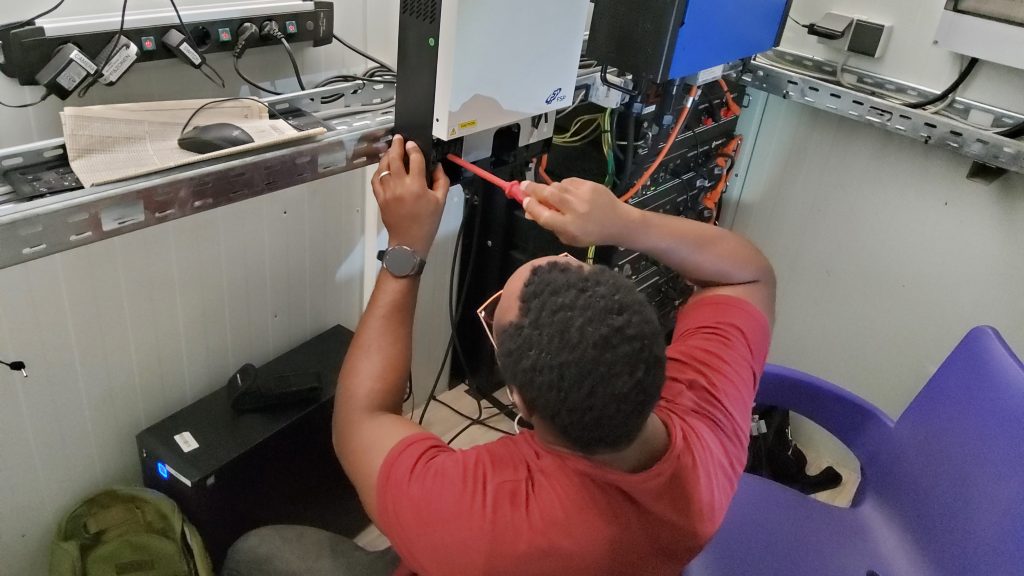
Mohammed Abass from our project partner WestfalenWIND travelled to Ghana to adjust and improve the PV-hybrid power system at the health facility in Kologo.
When putting research into practice, the reality often calls for adjustment of foregone planning. Just like other initiatives, the EnerSHelF project is undergoing constant evaluation, adjustments, and improvements. In our previous article, we described the process of training local enumerators to conduct quantitative interviews at health facilities across Ghana. Here, the training week was followed by a pilot study before the main survey at 200 health facilities started in July. The test run helped to identify any necessary changes in the questionnaire and survey design.
On the engineering side of the project, the solar-hybrid systems at the health facilities of our three pilot sites need constant checks to evaluate if they are running as planned. Many adjustments can be done remotely via sensors and software, which has been set-up by our technicians and researchers. However, certain work must be done at the site.
For this purpose, Mohammed Abass from our industry partner WestfalenWIND has recently been visiting the pilot site at Kologo. At Kologo, the project team previously setup a container with a PV-hybrid power system to help circumvent power cuts and shortages at the facility. Now, Mohammed did a software update to better control the system remotely. Additionally, together with the local technician Jacob Kpah, he has been upgrading the power inverter from 3kw to two times 5kw to better charge the batteries via the grid. The two new parallel-connected inverters are manually turned off during the day. This allows the PV system to charge the batteries and power the health facility whenever there is enough sunshine. The inverters are manually put back on at sunset by Jacob. Originally, they also planned to change the installed batteries to increase the capacity. However, they were unable to get the new batteries from Abidjan as planned. That means that more energy is now taken from the grid to supply the health center with sufficient power during the night.
Besides those small changes, the system is running well and supports the health facility at Kologo with a reliable power source for air conditioning and electricity supply. For the ongoing months, the system will be controlled remotely by our project partners but also with the help of local technicians.

Text by Jonas Bauhof